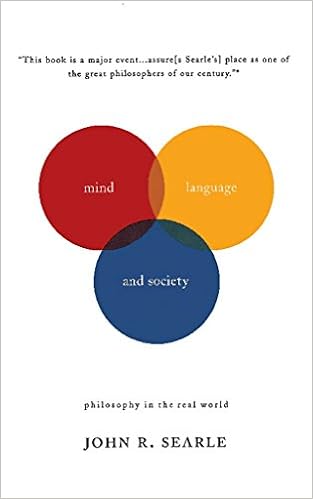
Wintery Knight reminds us that philosopher of consciousness John Searle wrote about the basic instincts behind post-modernism in Mind, Language and Society: Philosophy In The Real World in 2008:
I have to confess, however, that I think there is a much deeper reason for the persistent appeal of all forms of antirealism, and this has become obvious in the twentieth century: it satisfies a basic urge to power. It just seems too disgusting, somehow, that we should have to be at the mercy of the “real world.” It seems too awful that our representations should have to be answerable to anything but us. This is why people who hold contemporary versions of antirealism and reject the correspondence theory of truth typically sneer at the opposing view.

I don’t think it is the argument that is actually driving the impulse to deny realism. I think that as a matter of contemporary cultural and intellectual history, the attacks on realism are not driven by arguments, because the arguments are more or less obviously feeble, for reasons I will explain in detail in a moment. Rather, as I suggested earlier, the motivation for denying realism is a kind of will to power, and it manifests itself in a number of ways. In universities, most notably in various humanities disciplines, it is assumed that, if there is no real world, then science is on the same footing as the humanities. They both deal with social constructs, not with independent realities. From this assumption, forms of postmodernism, deconstruction, and so on, are easily developed, having been completely turned loose from the tiresome moorings and constraints of having to confront the real world. If the real world is just an invention-a social construct designed to oppress the marginalized elements of society-then let’s get rid of the real world and construct the world we want. That, I think, is the real driving psychological force behind antirealism at the end of the twentieth century. More.
As we all know, it has got to the point that the basic operating principles of science can be portrayed as just one or another example of bigotry. Science boffins say nothing because they dare not confront the toxic snowflakes Bret Weinstein had to face when they can hide out in the comfort and safety of their offices instead, concede key points, and emit soothing blather to no effect.
See also: Bret Weinstein, the Evergreen prof who got SJW-d? It’s partly the fault of creationists! Here’s the problem Francis and so many others do not want to face: Current science boffins, with way more reach than any native American activist, are unwilling and unable to take stand against post-modernism (and its inevitable results), possibly because they believe it themselves and just want to stay on top anyhow.
Can science survive long in a post-modern world? It’s not clear.
and
How naturalism morphed into a state religion